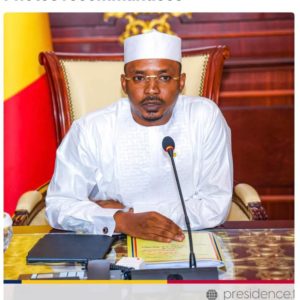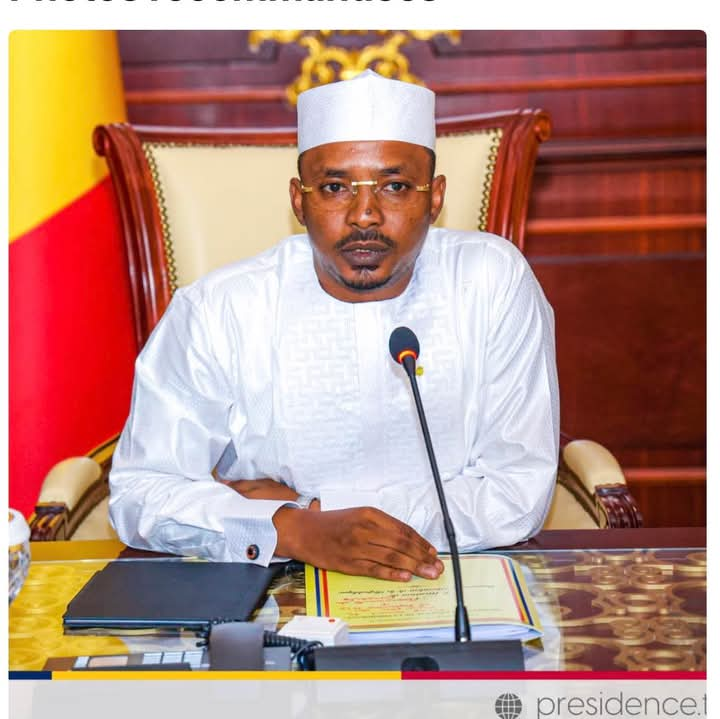
By Adeyemi Adekunle
Chad’s security forces have reportedly foiled a destabilization attempt in the capital, N’Djamena, on Wednesday evening, after gunfire erupted near the presidential office. The military swiftly responded by blocking surrounding streets and securing key areas as the situation unfolded.
The incident came at a time of heightened tension in the country, coinciding with the visit of Chinese Foreign Minister Wang Yi and following Chad’s controversial severing of a long-standing defense pact with France.
Government spokesperson Abderaman Koulamallah, in a video posted on social media, reassured the public that the crisis had been swiftly contained. “It was a little incident… everything is calm,” Koulamallah said, emphasizing that the military had successfully neutralized the threat. Despite the calm tone, the spokesperson did not provide specific details about the attackers or their motives but confirmed that a destabilization attempt had been thwarted.
The shooting occurred as military personnel attempted to contain gunfire near the presidential palace, with a security source describing the assault as an attempted terrorist attack.
According to this anonymous official, the attackers—who were traveling in three vehicles—targeted military camps near the presidential office. The army responded rapidly and managed to “neutralize” the attackers, preventing any further escalation.
“I’m stuck at Place de Nation in front of the president’s office because I hear intense gunfire and see military vehicles coming from all directions,” said Abbas Mahamout Seid, a local resident who was nearby when the chaos unfolded. Residents in the area spoke of a tense atmosphere and volleys of gunfire, while security forces ensured that civilians were kept at a distance for their safety.
Though initial reports suggested the attack was a terrorist strike, the precise nature of the threat remains unclear. It is still uncertain who was behind the attack and what their objectives may have been. Koulamallah, who appeared with a handgun strapped to his hip and posed with soldiers armed with assault rifles, assured that more details would be made available to the public once investigations were completed.
Wednesday’s events come at a time of significant political and diplomatic transition for Chad. The country is under the leadership of President Mahamat Idriss Deby, who took power after the death of his father, longtime ruler Idriss Deby, in 2021.
President Idriss Deby’s death, during a visit to northern military troops battling insurgents, set off a period of uncertainty and led to an upheaval in the nation’s leadership. The son, Mahamat, was quickly declared interim president by the military leadership and has since been consolidating his power, though his position has been challenged by some domestic and international factions.
Chad, a country rich in oil resources but one of the poorest in Africa, has long struggled with instability. The country lies at the heart of the volatile Sahel region, grappling with armed insurgencies, extremism, and a mix of political unrest. For years, it has relied on alliances with Western powers, particularly France, in fighting armed groups and Islamist militants.
However, Chad has recently sought a shift in alliances, as it officially ended its defense cooperation pact with France, a country it once saw as a vital partner in securing its borders and the Sahel region.
This decision came shortly before Chinese Foreign Minister Wang Yi’s official visit to the country. Chad’s move away from France signals an evolving foreign policy approach and is seen as an effort to foster stronger ties with China.
The Chinese visit was seen by many as a sign of China’s growing influence in the region, while Chadian officials focused on establishing new economic and defense partnerships.
It remains to be seen how the political dynamics surrounding this attempted destabilization may evolve. The attack may be connected to various domestic and international factors, including resentment towards President Mahamat Idriss Deby’s leadership, as well as increasing tensions with former ally France.
For now, the military in Chad appears to have regained control of the situation, but the political consequences of this escalation—especially amid the China visit and defense reshuffling—may have a lasting impact on the nation’s stability.




